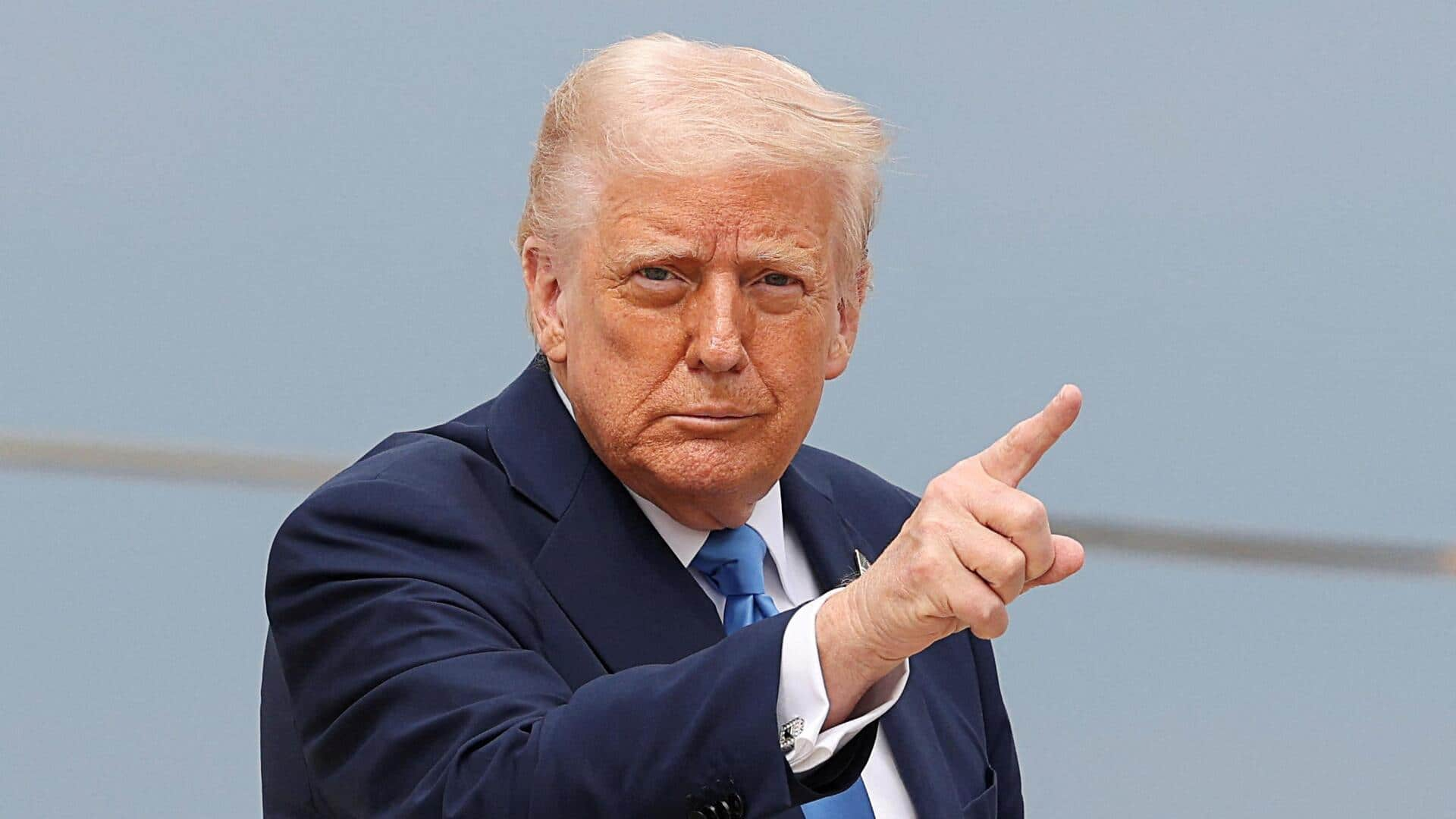
US has begun collecting Trump's 10% tariff on all imports
What's the story
US customs agents have started enforcing President Donald Trump's unilateral 10% tariff on all imports from several countries.
Higher levies on goods from 57 major trading partners are due to start next week.
The initial "baseline" tariff was imposed at US seaports, airports, and customs warehouses at 12:01am ET (9:31am IST).
This marks Trump's complete dismissal of the post-World War 2 system of mutually agreed tariff rates.
Impact
Global trade dynamics changed
Kelly Ann Shaw, a trade lawyer at Hogan Lovells and former White House trade adviser during Trump's first term, called this "the single biggest trade action of our lifetime."
Speaking at a Brookings Institution event on Thursday, Shaw said she expects these tariffs to change over time as countries negotiate lower rates.
However, she admits the move has changed global trade dynamics significantly.
Economic fallout
Tariffs lead to record stock market decline
Trump's tariff announcement led to a record two-day market decline in the US, wiping $5 trillion in stock market value for S&P 500 companies by Friday's close.
This has led to oil and commodity prices plummeting, with investors seeking refuge in government bonds.
Among the nations first hit by the 10% tariff are Australia, UK, Colombia, Argentina, Egypt, and Saudi Arabia.
Tariff escalation
Higher tariffs on European Union and China
Starting April 9, Trump's higher "reciprocal" tariff rates of 11% to 50% will come into effect.
The European Union imports will face a 20% tariff, while Chinese goods will be slapped with a fresh 34% tariff.
This takes total new levies on China to an unprecedented 54%.
Vietnam, which benefited from the US supply chains moving away from China after Trump's first-term trade war with Beijing, will also be slapped with a hefty 46% tariff.
Exemptions
Canada, Mexico exempt from Trump's latest tariffs
Canada and Mexico are exempt from Trump's latest duties as they continue to face a 25% tariff over the US fentanyl crisis, for goods failing to meet US-Mexico-Canada rules of origin.
Trump has also issued a list of over 1,000 product categories exempted from these tariffs.
These include crude oil, petroleum products, and other energy imports worth $645 billion.
Worry
Tariffs could trigger retaliatory measures
Trump's latest tariffs are the most extensive yet and could trigger retaliatory measures, escalating trade tensions which could disrupt the global economy.
The White House blames these trade gaps on an "absence of reciprocity" in relationships and other policies like "exorbitant value-added taxes."
The move has drawn mixed reactions from major trading partners who are assessing the international standoff and potential recession risks.